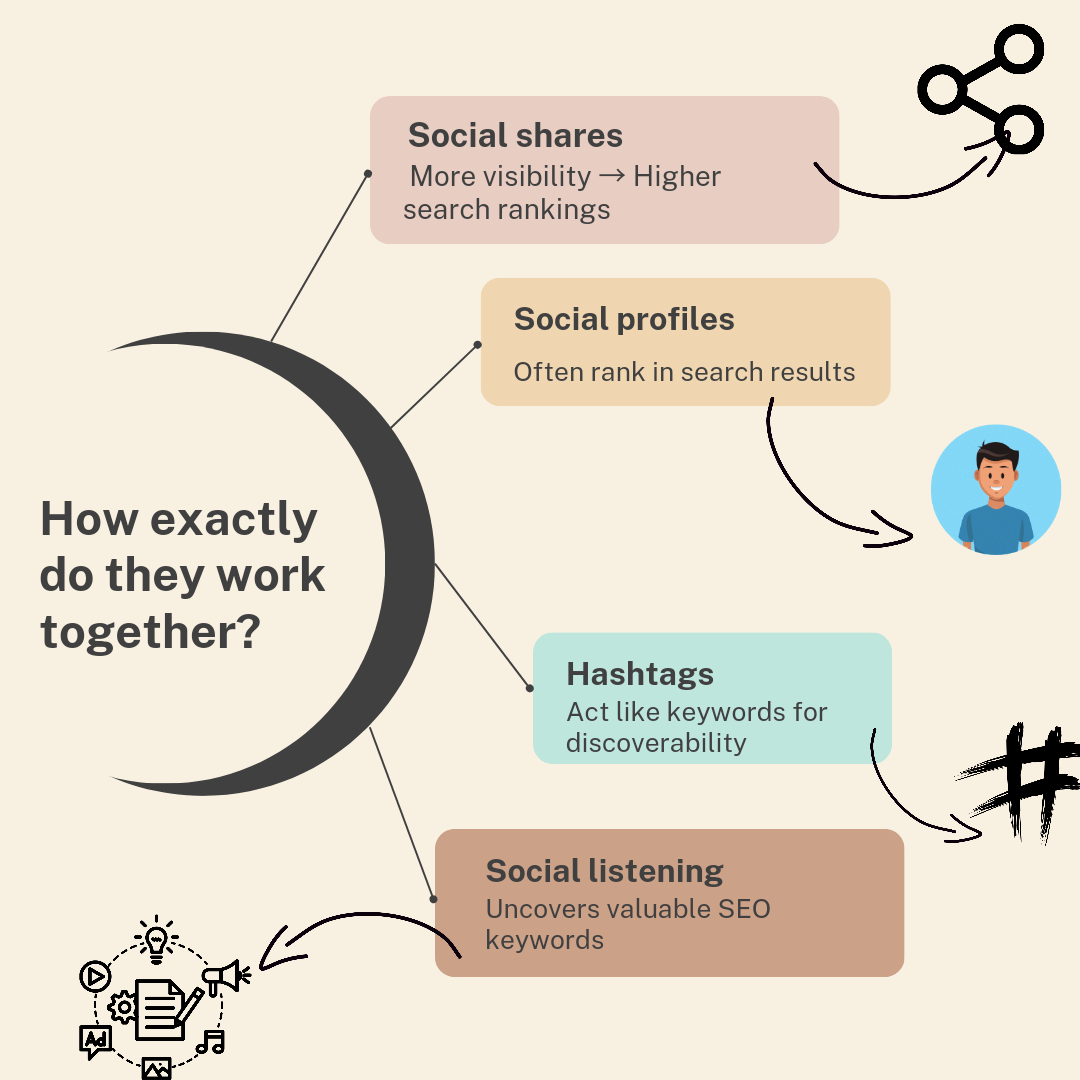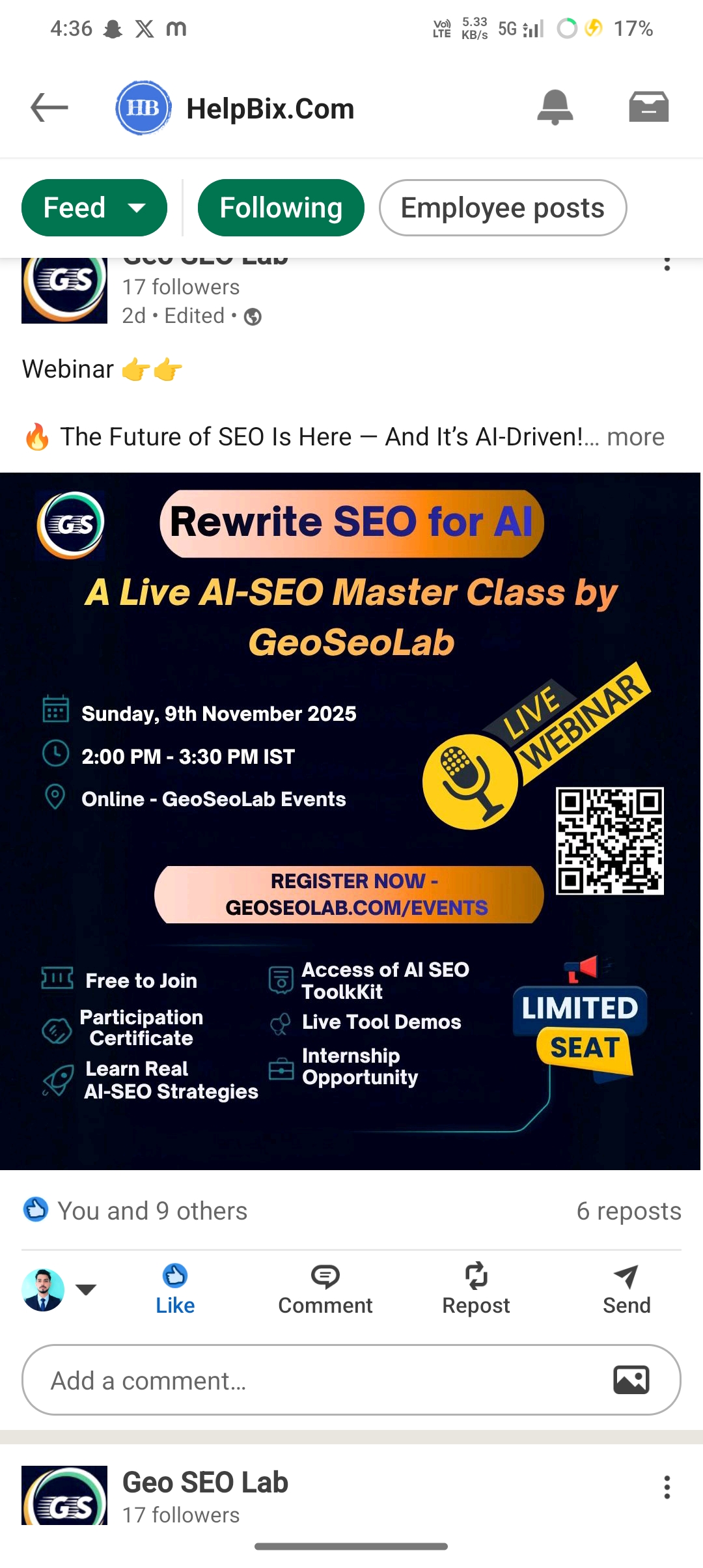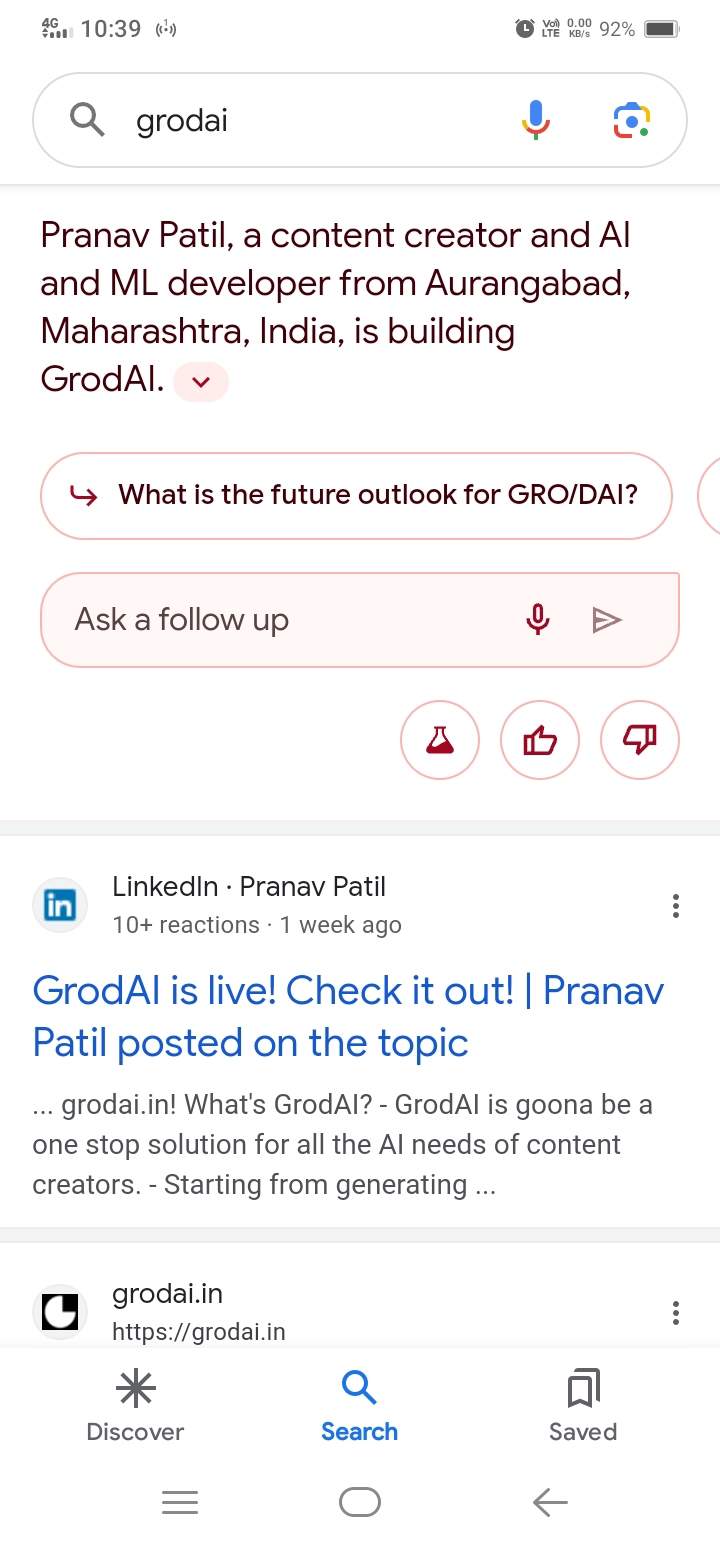Back
Rohith R
I help businesses to... • 1y
SEO Lane Series - Lane 3 25 Common SEO Terminologies. ___________________________________ These are some of the terms you should be aware of while doing SEO, 1 - Keywords: Words or phrases people type into search engines to find information. 2 - SERP (Search Engine Results Page): The page that displays results after you search for something on Google or other search engines. 3 - Organic Traffic: Visitors who come to your site from unpaid search engine results. 4 - Backlinks: Links from other websites that point to your site, helping improve your authority and SEO. 5 - Domain Authority A score (1-100) that shows how authoritative your website is, based on links and other factors. 6 - Meta Title: The clickable headline that appears on the search results page. 7 - Meta Description: A short description under your meta title on the SERP that explains what the page is about. 8 - Alt Text (Alternative Text): A description added to images to help search engines and visually impaired users understand the image. 9 - Anchor Text: The clickable text in a hyperlink that links to another page. 10 - Bounce Rate: The percentage of visitors who leave your site after viewing just one page. 11 - Keywords Stuffing: Overloading a page with too many keywords, which can hurt your rankings. 12 - Canonical Tag: A tag that tells search engines which version of a similar page to index (avoids duplicate content). 13 - Robots.txt: A file that tells search engines which pages they can or cannot crawl on your site. 14 - XML Sitemap: A list of all the important pages on your site, helping search engines find and index them. 15 - E-A-T (Expertise, Authoritativeness, Trustworthiness): Google’s quality guidelines for ranking content. 16 - Featured Snippet: A short answer box at the top of Google results, showing quick answers to queries. 17 - Keyword Density: The percentage of times a keyword appears in content compared to the total word count. 18 - Do-Follow Link: A regular link that passes SEO value (link juice) to the linked page. 19 - No-Follow Link: A link that tells search engines not to pass SEO value to the linked page. 20 - Schema Markup: A type of code that helps search engines display rich results (like FAQs, reviews, and events). 21 - Search Intent: The purpose behind a user’s search query, such as looking for information, products, or reviews. 22 - Rich Snippets: Enhanced search results with additional details like ratings, prices, or FAQs, thanks to structured data. 23 - Mobile-First Indexing: Google primarily uses the mobile version of your site to index and rank content. 24 - Core Web Vitals: Google’s set of metrics that measure page speed, visual stability, and interactivity for better user experience. 25 - Latent Semantic Indexing (LSI): Keywords related to the main keyword that help search engines understand content context better.
Replies (3)
More like this
Recommendations from Medial
Tweak Buzz
TweakBuzz makes you ... • 6m
Technical SEO vs Content SEO: Finding the Perfect Balance In 2025, SEO isn’t just about keywords or just about speed—it’s about balance. Technical SEO ensures your site is crawlable, fast, and optimized for Core Web Vitals. Content SEO, on the other
See MoreTweak Buzz
TweakBuzz makes you ... • 8m
How Page Speed Optimization Impacts Your Website Audit Results Page speed optimization plays a crucial role in the outcome of any website audit. A slow-loading site not only frustrates users but also negatively impacts your search engine rankings. D
See Morelucas anderson
Hey I am on Medial • 4m
Best SEO Services Company in the USA for Growth In today’s digital world, having a strong online presence is crucial for every business. To gain a competitive edge and secure top rankings in search results, businesses need effective Search Engine Op
See MoreTweak Buzz
TweakBuzz makes you ... • 7m
AI SEO Tools Guide to Skyrocket Your Google AI-Powered SERP Rankings In today’s rapidly evolving digital world, AI SEO tools have become essential for marketers and businesses aiming to dominate Google’s AI-powered SERP rankings. Traditional SEO str
See MoreHedayat Ullah
Hey I am on Medial • 1y
Social Media - A Power Couple for Digital Success Remember when we thought SEO and social media were separate worlds? Those days are gone! Today, let's uncover how these two digital powerhouses work together to boost your online presence. 🚀 Pict
See More
Sumit Singh
“Not here to be like... • 3m
“The SEO Myth Most Businesses Still Believe” 🚀 Think SEO is just about ranking keywords? Think again. Many businesses spend months chasing the top spot on Google… but traffic without conversions is worthless. Here’s the truth: SEO isn’t just key
See More
Rohith R
I help businesses to... • 1y
SEO lane series - Lane 2 How search engine works and ranks. Not only google, Every search engines works the same patterns as this. Search engine ranks a website by following this only this 3 steps. Crawling Indexing Ranking Crawling : There are
See MoreDownload the medial app to read full posts, comements and news.














/entrackr/media/post_attachments/wp-content/uploads/2021/08/Accel-1.jpg)




















